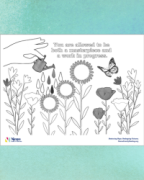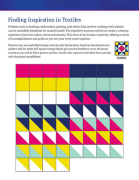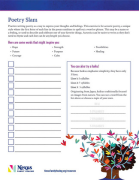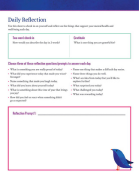September is Suicide Prevention Month. Suicide is the second leading cause of death in young people and affects all ages. At Nexus Family Healing, prevention is an important focus across our agencies. This month we are highlighting how you can use arts and recreation as coping skills.
These activities build skills that can help young people by providing a sense of community, building connections, creating purpose and meaning, helping to process trauma and become more resilient. All important tools in preventing suicide and building resilient mental health in youth.
Art As Exploration
Drawing, painting, sculpting, and other forms of art can help us process trauma, reduce anxiety, develop a sense of self-worth, and increase confidence. Art is a forgiving skill builder; it reminds us that perfection doesn’t exist and helps us learn to pivot when things don’t go exactly as planned.
Art as a Therapeutic Tool
Youth at our agencies often engage in art projects as part of treatment, education, or recreation while in our care. Here are some inspiring pieces created by our talented youth.
Works of Heart Coloring Pages
Give your brain a break and find some inspiration with our "Works of Heart” coloring pages. Download, print, and share our four hope-filled designs.
Finding Inspiration in Textiles
The repetitive motions and focus of knitting, embroidery, quilting, and other textile hobbies create a calming experience that can reduce stress and anxiety.
Music as Healing
Music has a profound impact on our emotions and is a universal language that speaks to all walks of life offering comfort and a sense of community. Playing an instrument, singing, songwriting, or simply listening to music can lift our spirits, calm our minds, and connect us with others.
Boost your mood with some feel-good music! We have created a new playlist of mood-boosting music, curated by Nexus Family Healing staff. Be sure to check out previous years' playlists here. Enjoy!
Writing As Reflection
Writing provides a private space to reflect on thoughts and experiences. Journaling, poetry, or storytelling can help organize, bring clarity and process emotions. Writing can be particularly therapeutic for those who struggle to express themselves verbally. A great place to start a writing practice is with a daily gratitude list or with journaling.
Poetry Slam
From acrostic to free verse, a variety of poetic styles help us explore our feelings with freedom and confidence.
Daily Reflection
Use this sheet to check in on yourself and reflect on the things that support your mental health and well-being each day.



